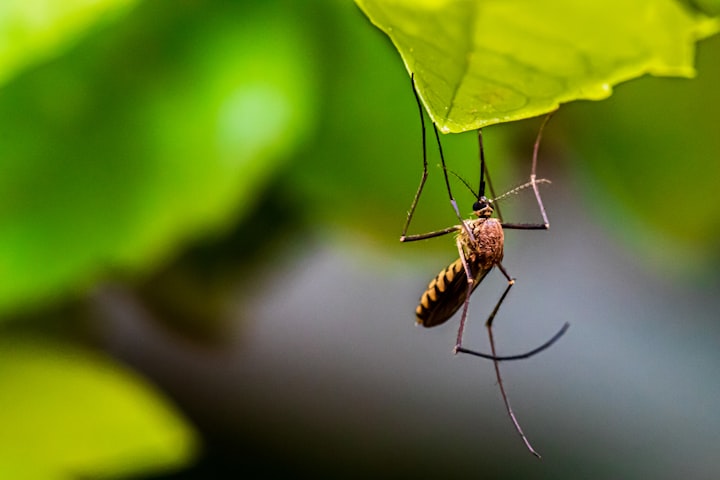Only Female Mosquitoes Bite Humans
Male mosquitoes only consume nectar.
Mosquitos are often seen as a nuisance because they leave behind itchy and sometimes painful bites . . . especially the larger mosquitos. When they insert their mouthpart into your skin, they leave behind large welts filled with fluid. When female mosquitoes bite, they inject saliva into your body as they siphon out your blood. Most people are allergic to the saliva, which is why a welt is left behind. These bites are often treated with cortisone cream until they heal and go away. If they’re scratched at and the skin is exposed, then it can become infected and lead to bigger issues. No one wants that to happen. Prevention and protection is key.
Mosquitoes don’t need to be around your home! There are some remedies to detract mosquitoes from frequenting your home and from your body. What can you do to prevent this persistent pest?
1. Mosquitoes are attracted to dark colors. Black or brown pants and shirts aren’t going to be useful for you if you’re on the hunt to avoid mosquito bites. Most of their prey is in the shade, which is why they’re used to navigating darker hues.
2. Mosquitos are drawn to fragrances, such as perfume and cologne. They often bite people on the forearms and neck for that reason.
3. They are drawn to carbon dioxide — that’s right, your breath.
4. Mosquitos like salty people. No, not someone with an upset or embarrassed attitude. A person who eats a lot of sodium will be more viable than someone who consumes something acidic.
5. Around your front door, you can leave out dry ice. Since mosquitoes are attracted to carbon dioxide and dry ice emits that, it’ll cause them to be more attracted to the dry ice. Be very careful though, since dry ice will cause burns if touched with bare and vulnerable skin.
6. When you’ve been camping or outdoors, you might have seen citronella as an added ingredient in mosquito repellent. That’s because this natural essential oil is mixed with other herbs to make it more effective against mosquitoes and no-see-ums. Citronella can also be over 50% effective as a candle against attracting mosquitos bites.
7. They are attracted to moisture. When you’re sweaty or being damp from being in the rain, they will be more attracted to your skin. Mosquitoes lay their eggs in water, so they are naturally drawn to wet substances and will cling to it. Sweat also has salt, which makes it a double whammy!
8. Garlic! Spraying garlic and or eating garlicky substances repels mosquitoes from landing on you.
Why Do Only Female Mosquitoes Bite?
Mosquitos go through four reproductive stages: egg, larvae, pupa, and adult. When the mosquito lays its eggs in stagnant water, the larvae that emerges feeds off the nutrients left in the water. If you walk through a storm puddle in the summer, you’re likely to be dragging larvae along with you. How do mosquitoes reproduce?
Male mosquitoes feed primarily on sugar, which they extract from plants with nectar. They are often smaller than female mosquitoes and they don’t make the buzzing sound that females do. Female mosquitoes also have less bushy antenna and odor receptors that aid her in targeting blood sources. Who else eats nectar? Ladybugs! They use nectar as a source for nutrients and pollen for its vitamins. All ladies aren’t bad.
Female mosquitoes need blood in order to produce eggs. They can survive on just consuming nectar like their male counterparts, which still gives them an abundance of energy, but they need blood to be able to produce eggs. Female mosquitoes use the amino acids in the blood they consume to aid in the generation of eggs. What else does this?
Mosquitoes are not the only blood-suckers out there. Fleas also need a blood meal in order to lay their eggs. Once they consume your blood, they lay eggs 36 to 48 hours later. It’s a vicious cycle for people and hard to defeat. Fleas usually target our furry friends, like your cat or your dog. Your blood is the very source for their survival and many people aren't rooting for either of these creatures to survive and to continue to procreate.
Mating Rituals
There’s a common misconception that female arthropods like black widows and praying mantises eat their partner after mating. Yes, praying mantises do occasionally eat their male counterpart, but that means only 1 out of 45 mating rituals results in death and the male is just as likely to do this too. Why the misconception? Female black widows are much larger than the males, so it’s led some to believe that this girth led to the cannibalism myth for those spiders.
If spiders are around your home, make sure they aren’t poisonous! If they aren’t, you might want to keep them outside your door or nearby because they will naturally target mosquitos as prey. Having a spider as your unlikely ally will reduce the amount of times you’re bitten and may protect you from a deadly disease.
What Else, Mate?
Mosquitoes spread diseases when they inject their saliva into your body. Mosquitoes spread diseases like Zika virus, West Nile virus, Chikungunya virus, dengue, and malaria. Who is most at risk? Outdoor workers, people who travel for business, Healthcare workers, and Laboratory technicians are more likely to contract one of these deadly diseases. Wearing bug repellent, brighter clothes, long sleeves, and consuming less salt make you a less viable candidate for insect bites and these diseases. If pregnant, be sure to read the label of any insect repellent that is applied to your skin.
Bugs can be an annoying and dangerous problem. If you use them to your advantage, like a harmless spider, then they might not be so bad to have around. If you see a mosquito on your arm sucking your blood, remember — they’re just doing what they need to do to survive. Aren’t we all doing just the same?
About the Creator
Sherry Campbell
Second grade teacher by day, at home therapist for two middle school daughters by night.







Comments
There are no comments for this story
Be the first to respond and start the conversation.